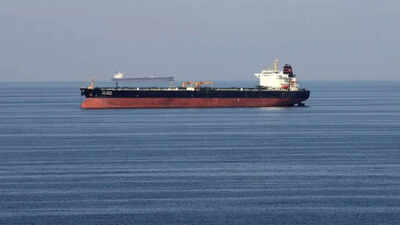Strait of Hormuz Tensions Drive Up Marine Insurance Costs
MUMBAI: The recent escalation in the Iran-Israel-US conflict has sent shockwaves through global insurance markets, particularly in the marine insurance sector. Iran’s parliamentary approval to block the Strait of Hormuz, a vital oil shipping route, has led to a significant increase in war risk premiums and potential withdrawal of war cover in the Persian Gulf.

Gaurav Agarwal, VP at Prudent Insurance Brokers, noted, “The ongoing conflict has heightened tensions in the Persian Gulf, already considered a high-risk area in marine insurance. Insurers have been charging additional war premiums for years, and with the latest escalation, we anticipate a potential increase in war premiums for cargo shipments in the region.”
Marine underwriters are exercising renewed caution when dealing with the Persian Gulf. A senior official at a state-run insurer revealed that war risk premiums for vessels entering the Gulf have jumped to 0.2% of a ship’s value per transit, marking a 60% increase from the previous 0.125%. Premiums for Israeli port calls have more than tripled to 0.7% from 0.2%, while rates for Red Sea transits have edged up to 0.25-0.3%.
Bhavesh Patel, executive director at Edme Insurance Brokers, stated, “The conventional war risk cover was already suspended for cargo traveling through the Red Sea. The conflict could have implications for insurance covers on airlines that may be called for evacuation.”
The insurance market is also witnessing shorter quote validity windows, reducing from 48 to 24 hours, reflecting the heightened volatility. Insurance for a typical ‘very large crude carrier’ carrying oil from Saudi Arabia to China has reportedly risen from $0.25 to $0.7-0.8 per barrel overnight.
In response to the escalating tensions, some underwriters are introducing “blocking and trapping” cover for vessels that could be immobilized in the event of a closure. Others are demanding proof of risk mitigation, requiring ships to avoid conflict zones as a precondition for coverage. War risk premiums in the Gulf are projected to rise to 0.2-0.4% of insured value, with further hikes expected if tensions persist.

